Enzymatic measurements revealed an increase in pyruvate kinase vmax activities in renal clear-cell carcinomas (RCCs) compared to normal renal cortex taken from the same patient.
Vmax activities of pyruvate kinase in homogenates of normal renal cortex and RCCs
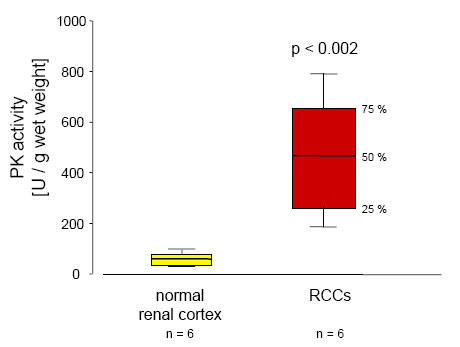
Vmax activities were measured spectrophotometrically according to the following reaction:

In normal renal tissues immunohistochemical localization of PK isoenzymes reveals a selective expression of pyruvate kinase type L (L-PK) in the epithelia of the proximal tubules whereas the pyruvate kinase isoenzyme type M2 (M2-PK) is only detectable in distal tubules, the loops of Henle and collecting tubules.
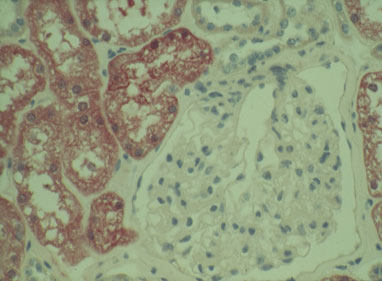
L-PK staining in proximal renal tubules |
|
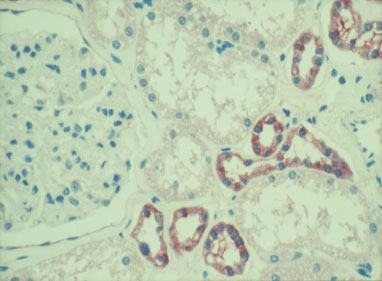
M2-PK staining in distal renal tubules |
|
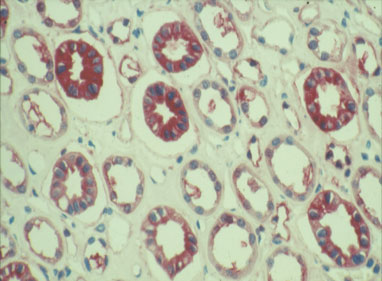
M2-PK staining in the loops of Henle and collecting tubules of the renal medulla |
|
Renal cell carcinomas of clear cells and chromophilic cells are characterized by a homogeneous expression of M2-PK and a heterogeneous expression of L-PK. |
|
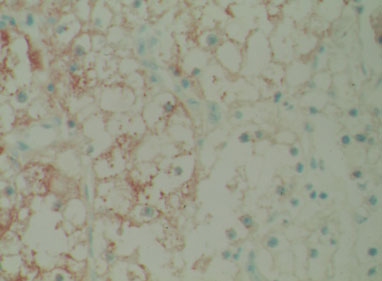
L-PK staining in RCCs |
|
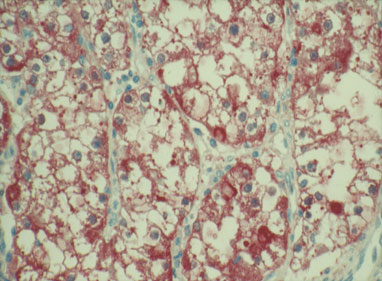
M2-PK staining in RCCs |
|
The observation that L-PK, which is a specific proximal renal tubule differentiation molecule, is expressed in clear-cell and chromophilic RCCs provides further evidence that the majority of clear cells and chromophilic RCCs in humans derive from proximal tubules.
Immunohistochemical staining of PK isoenzymes: Gösta Fischer
Tumor M2-PK concentrations in EDTA-plasma samples from patients with renal clear-cell carcinomas Correlation between Tumor M2-PK values and staging
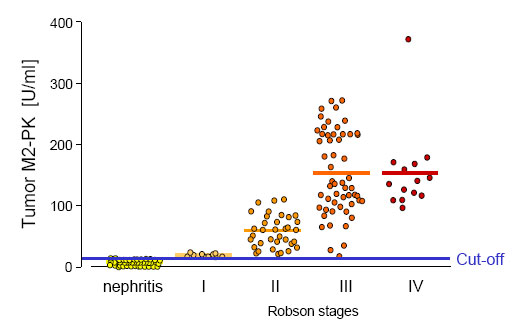
By courtesy of : Gerhard Maximilian Oremek
Tumor M2-PK concentrations in EDTA-plasma samples Follow-up study of a patient with a RCC with metastases Complete Remission
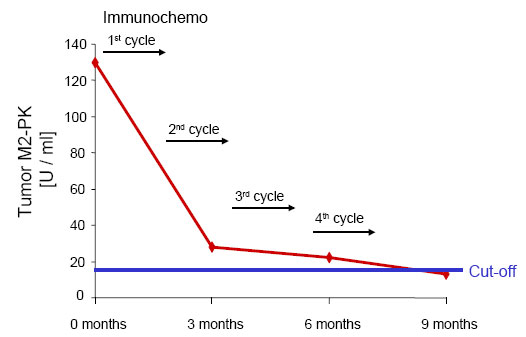
By courtesy of : Hans Wilhelm Wechsel
Tumor M2-PK concentrations were measured with a sandwich ELISA from ScheBo Biotech AG, Giessen, Germany.